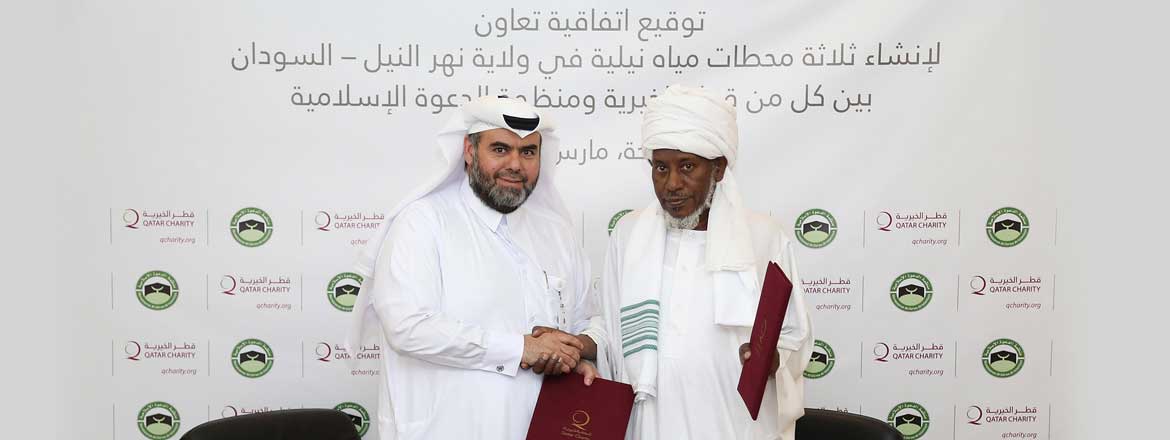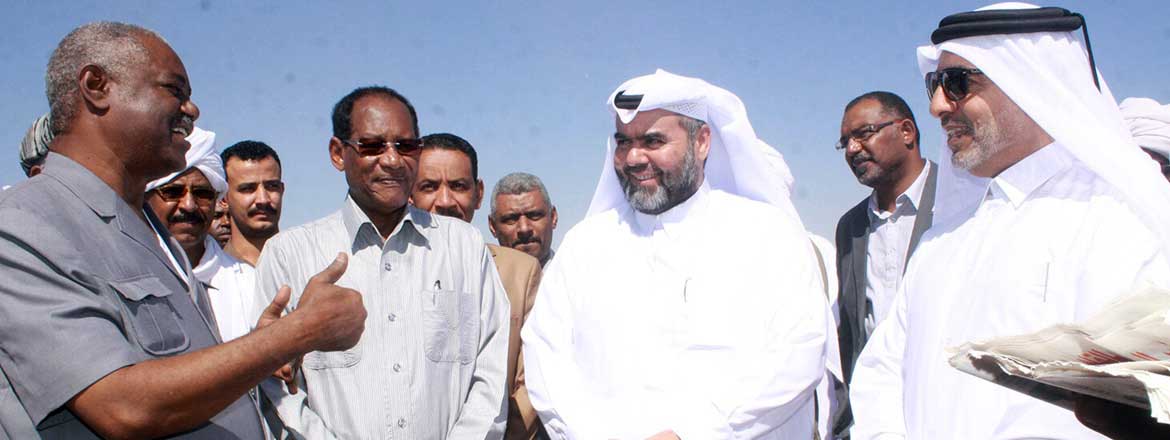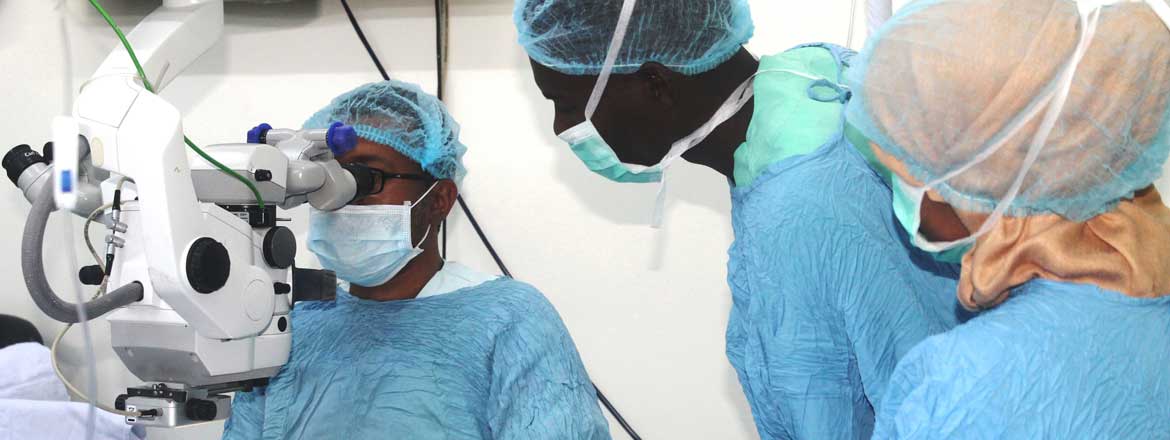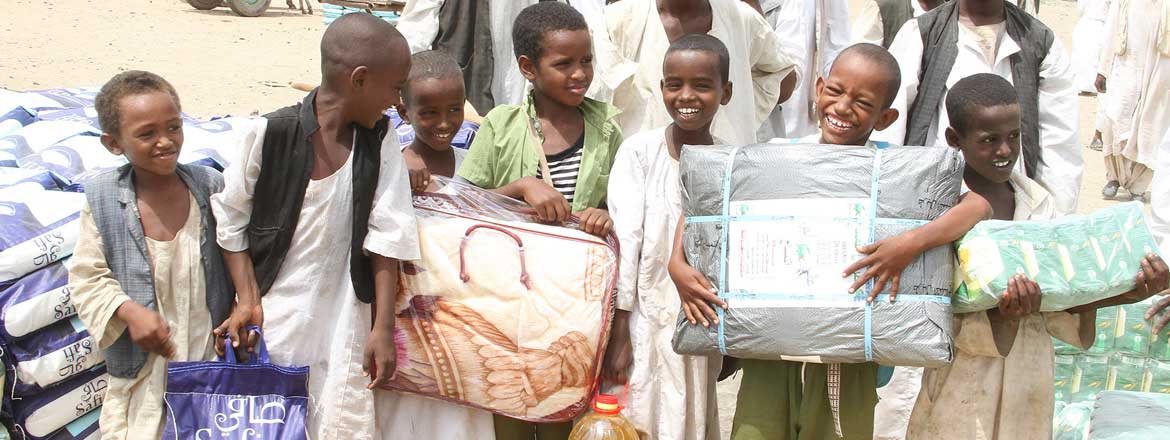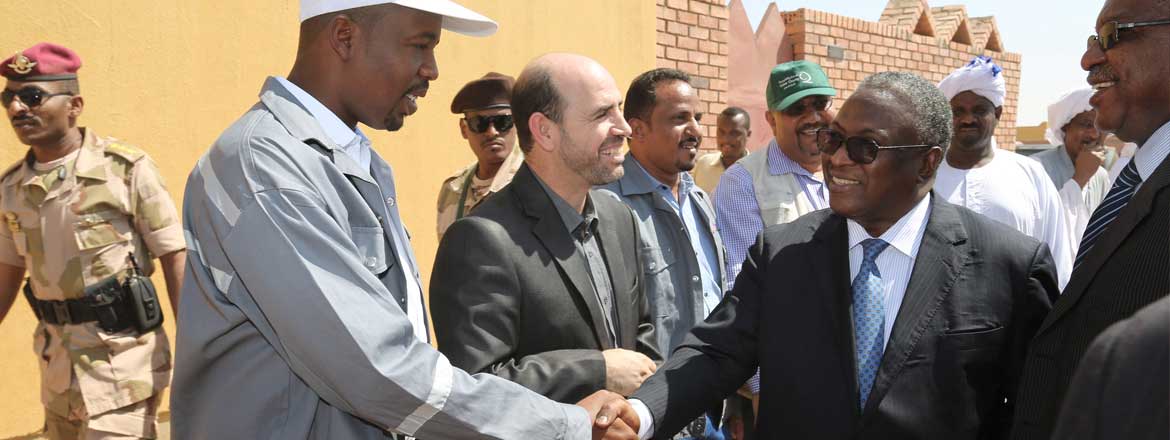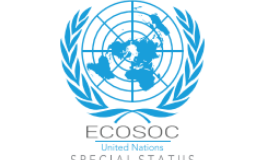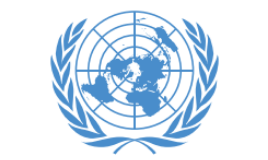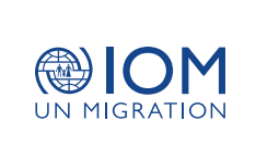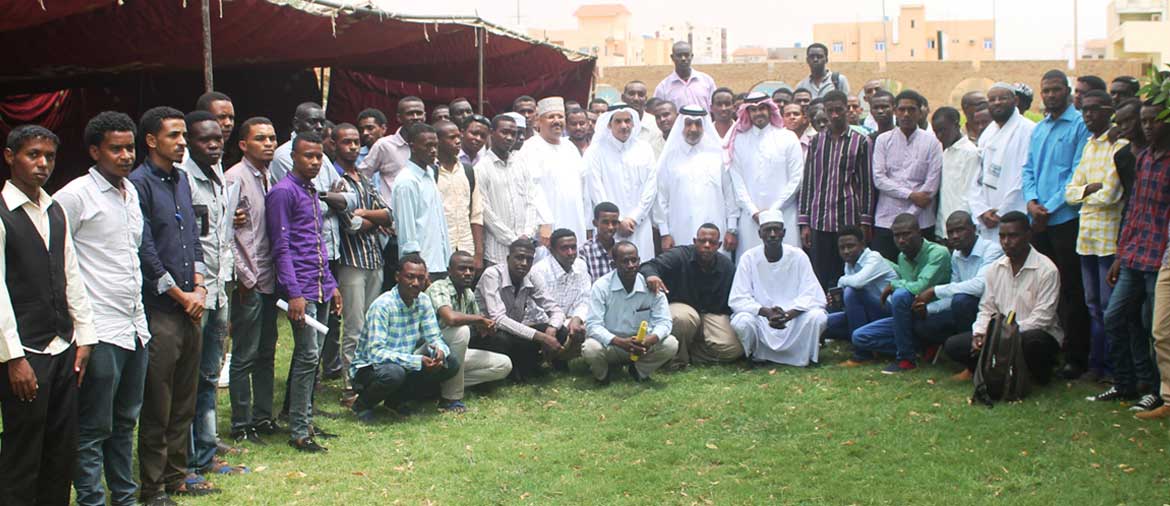
Because it always supports the neediest categories and because it always tries to fulfill its duty towards the orphans it sponsors, QC signed a strategic partnership with Hemaya Security Solutions Co. to hire more than 250 orphans of legal age in Sudan. This initiative is considered to be the first of its kind ever to be implemented by a charity organization.
Mr. Rashid Abdurrahman Al-Naimi, Qatar’s Ambassador in Sudan, Mr. Faisal Rashid Al-Fahida, QC’s EDO, and Mr. Falih Hamad Al-Hajri, Chief of Governmental Relations Department at Hemaya, supervised the starting of the interviews.
More than 548 candidates applied for the job. 400 of which were interviewed by Hemaya’s delegate Mr. Falih Ahmed Al-Hajri. The interviews lasted for four consecutive days; then 319 were selected to work for Hemaya. 250 of them were from orphans and 59 of them were from the orphans’ families.
Commendations
Mr. Rashid Abdurrahman Al-Naimi, Qatar’s ambassador in Sudan, praised the cooperation between the Qatari institutions to achieve humanitarian and charitable goals. He said it shows Qatar’s bright side.
Furthermore, Mr. Faisal Rashid Al-Fahida, QC’s EDO, commended the outcome of the partnership between Hemaya Co and QC. Such initiative will result in the enhancement of the conditions of many families.
Mr. Falih Hamad Al-Hajri, Chief of Governmental Relations Department at Hemaya, emphasized on the company’s willingness to expand its partnership and increase the work with QC under the understanding of the responsibilities of the Qatari institutions to make a positive change in people’s lives and to empower them economically.
All of the interviewees expressed their appreciation and gratitude for Qatar and QC for such a good initiative hoping more orphans and poor families would benefit from it.
The EDO said that according to QC’s procedures and regulations, the sponsorship time ends when the orphan becomes of a legal age; 18 and above. However, QC never stops helping them until they are financially independent.
Sponsorship Services
QC offers two kinds of services to the sponsored children. First, it offers individual services such as regularly giving money to the sponsored during the time of sponsorship, and directly supervising the student’s education, health, social behavior and psychology. In addition, it offers in-kind contributions every now and then which help the child such as giving him\her a school bag or Eidya.
Second, it offers a group services which include all the activities QC does for a group of sponsored children at the same time. These services and activities can be cultural, artistic, educational, sport, or entertaining.
Sponsorships differ and depend on the conditions of the orphan. There is the sponsorship of a child living with his family, a child living with a foster family, and a child living in an orphanage. Sponsoring children while living with their families comes first because QC believes in the importance of growing up around one’s family. Family is a healthy environment which supports the child educationally, psychologically, emotionally and socially. Sponsoring children by sending them to foster families comes second. Finally, if the first and second choices are not available, QC sends children to an acknowledged orphanage.
85,000 Orphans
QC is currently sponsoring more than 3,489 orphans in 8 Sudanese states. It provides them with financial and educational support, and offers them cultural and entertaining activities. As part of last year’s campaign “Rofaqa’” (Companions), QC sponsored more than 750 orphans in Sudan. Finally, QC sponsors around 85,000 orphans around the world in more than 40 countries.
